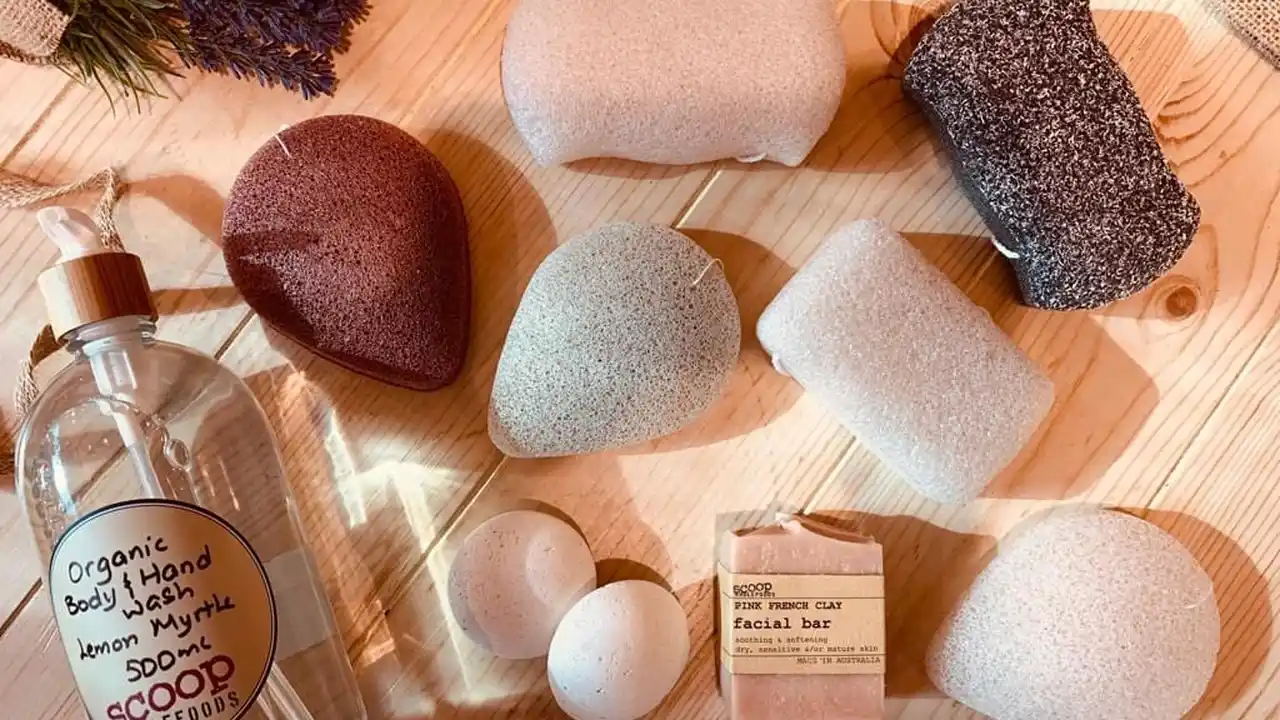Eco-Friendly Souvenir Shopping Tips
Make ethical wildlife tourism choices to support conservation efforts. Learn about responsible wildlife encounters and avoid activities that harm animals. Choose tours that prioritize animal welfare and habitat preservation.

Why Shop Sustainably for Souvenirs Eco Conscious Traveler
Okay, so you're traveling, having an amazing time, and you want to bring back something to remember it all, right? Souvenirs are awesome! But let's be real, a lot of souvenirs are… not great. They're often mass-produced, shipped from far away, and can even exploit local communities or harm the environment. That's where eco-friendly souvenir shopping comes in! It's all about making conscious choices to support local artisans, sustainable practices, and products that are actually good for the planet (and the people!). Think of it as bringing back a piece of your trip that you can feel good about, long after you've unpacked your bags.
Understanding Ethical Souvenir Sourcing Supporting Local Artisans
The first step to eco-friendly souvenir shopping is understanding where your potential treasures come from. Ask questions! Where was this made? Who made it? What materials were used? Look for items that are handcrafted by local artisans, using locally sourced materials. This not only supports the local economy but also reduces the carbon footprint associated with shipping goods from overseas. Avoid mass-produced items that are likely made in factories with questionable labor practices. Think about it: that generic \"I Heart [City Name]\" t-shirt probably didn't contribute much to the local community. Instead, look for unique, handcrafted items that tell a story and support the people who created them.
Avoiding Harmful Souvenir Materials Eco Friendly Options
Certain souvenir materials are definite no-gos for the eco-conscious traveler. Avoid anything made from endangered species (like ivory or certain types of coral), products that contribute to deforestation (like unsustainable wood carvings), and items that are heavily processed with harmful chemicals. Plastic is another big one to watch out for. Instead, look for souvenirs made from natural, sustainable materials like bamboo, recycled glass, organic cotton, or sustainably harvested wood. Consider items made from upcycled materials – giving new life to something that would otherwise be waste is a fantastic way to support sustainability. Look for items with natural dyes, or dyes that are known to be eco-friendly.
Supporting Fair Trade Souvenirs Ethical Consumerism
Fair trade is a crucial aspect of ethical souvenir shopping. Fair trade ensures that artisans and producers receive fair wages and work in safe conditions. Look for fair trade certifications or ask vendors about their fair trade practices. Supporting fair trade helps to empower local communities and promote sustainable development. It also means you're getting a higher-quality product that was made with care and attention to detail. Think of it as an investment in a better world, one souvenir at a time. It might cost a little more, but the positive impact is well worth it.
Practical Eco Friendly Souvenir Shopping Tips Reducing Waste
Okay, so you know what to look for, but how do you actually shop in a way that minimizes your impact? Bring your own reusable shopping bag! Say no to plastic bags, which are a major source of pollution. If you do end up with a plastic bag, be sure to reuse it. Consider packaging when you are shopping. Ask the vendor if they have packaging-free options, or if they can wrap your purchase in recycled paper. Minimize your consumption of single-use items like water bottles and straws while you're shopping. And, of course, always be respectful of the local environment. Don't litter, and be mindful of your impact on the surrounding area.
Specific Eco Friendly Souvenir Product Recommendations and Reviews
Alright, let’s get down to some specific recommendations. I’ve broken it down into product types and some brands to look out for.
Handmade Jewelry from Recycled Materials Unique Gifts
Look for jewelry made from recycled metals, glass beads, or even upcycled fabrics. Many artisans create beautiful and unique pieces from discarded materials. Etsy is a great place to start your search, using keywords like \"recycled jewelry\" and the location you're visiting. For example, if you are traveling to Bali, search \"recycled jewelry Bali\".
Pricing: Prices vary widely depending on the materials and complexity of the design, but you can often find beautiful pieces starting around $20-$30.
Use Case: A thoughtful and unique gift for a friend or family member, or a special piece to remember your trip.
Locally Crafted Textiles Organic Cotton Scarves
Seek out scarves, bags, or clothing made from organic cotton, hemp, or other sustainable fabrics. Support local weavers and textile artists. Look for natural dyes and traditional weaving techniques. Thread International is a company that works with artisans in Haiti and Honduras to create beautiful textiles using recycled plastic bottles.
Pricing: Prices can range from $30 for a simple scarf to $100 or more for a larger item like a bag or piece of clothing.
Use Case: A stylish and sustainable addition to your wardrobe, or a unique home decor item.
Handmade Soaps and Lotions Natural Ingredients
Many local artisans create soaps and lotions using natural, locally sourced ingredients. Look for products that are free of harsh chemicals and packaged in eco-friendly materials. Ethique is a brand that offers solid shampoo bars, conditioners, and other personal care products that are plastic-free and made with sustainable ingredients.
Pricing: Ethique bars typically cost around $15-$20.
Use Case: A practical and sustainable alternative to conventional toiletries.
Reusable Beeswax Food Wraps Sustainable Kitchen
Beeswax food wraps are a great alternative to plastic wrap. They're made from organic cotton coated in beeswax, tree resin, and jojoba oil. They're reusable, biodegradable, and perfect for wrapping sandwiches, fruits, and vegetables. Bee's Wrap is a popular brand that offers a variety of sizes and patterns.
Pricing: A set of three Bee's Wrap wraps typically costs around $18-$20.
Use Case: A sustainable and eco-friendly kitchen essential.
Handmade Pottery Sustainable Ceramics
Look for locally made pottery items like mugs, bowls, or vases. Support local potters and choose pieces that are made with sustainable clay and glazes. Check out local craft fairs and markets to find unique and one-of-a-kind pottery pieces.
Pricing: Prices vary depending on the size and complexity of the piece, but you can often find beautiful mugs and bowls starting around $20-$30.
Use Case: A beautiful and functional addition to your home, or a thoughtful gift for a friend or family member.
Product Comparisons Sustainable Options
Let's compare some specific product categories to help you make informed decisions:
Reusable Water Bottles Plastic vs Stainless Steel vs Bamboo
Plastic: Avoid single-use plastic water bottles at all costs! If you must choose a plastic reusable bottle, look for BPA-free options. However, plastic can leach chemicals over time and is not as durable as other materials.
Stainless Steel: A great durable and long-lasting option. Stainless steel is easy to clean and doesn't leach chemicals. Hydro Flask and Klean Kanteen are popular brands.
Bamboo: A more sustainable option than plastic, but not as durable as stainless steel. Bamboo bottles are often lined with stainless steel to prevent leaks.
Shopping Bags Cotton vs Hemp vs Recycled Plastic
Cotton: A good natural option, but conventional cotton production can be water-intensive and use pesticides. Look for organic cotton bags.
Hemp: A very sustainable option. Hemp requires less water and pesticides than cotton. Hemp bags are also very durable.
Recycled Plastic: A great way to give new life to plastic waste. Recycled plastic bags are often lightweight and durable.
Sunscreen Chemical vs Mineral
Chemical Sunscreen: Contains chemicals that can harm coral reefs. Avoid sunscreens with oxybenzone and octinoxate.
Mineral Sunscreen: Contains zinc oxide or titanium dioxide, which are considered reef-safe. Look for non-nano particles.
Final Thoughts on Sustainable Souvenir Shopping Travel Tips
Shopping for souvenirs can be a fun and rewarding part of your travel experience. By making conscious choices and supporting local artisans and sustainable practices, you can bring back a piece of your trip that you can feel good about, knowing that you've made a positive impact on the environment and the local community. So, next time you're on the hunt for the perfect souvenir, remember to shop ethically, shop sustainably, and shop with a purpose!
:max_bytes(150000):strip_icc()/277019-baked-pork-chops-with-cream-of-mushroom-soup-DDMFS-beauty-4x3-BG-7505-5762b731cf30447d9cbbbbbf387beafa.jpg)






